第6章 THE COMMODITY(4)
Lastly,it is a characteristic feature of labour which posits exchange-value that it causes the social relations of individuals to appear in the perverted form of a social relation between things.The labour of different persons is equated and treated as universal labour only by bringing one use-value into relation with another one in the guise of exchange-value.Although it is thus correct to say that exchange-value is a relation between persons,[4]it is however necessary to add that it is a relation hidden by a material veil.Just as a pound of iron and a pound of gold have the same weight despite their different physical and chemical properties,so two commodities which have different use-values but contain the same amount of labour-time have the same exchange-value .Exchange-value thus appears to be a social determination of use-values,a determination which is proper to them as things and in consequence of which they are able in definite proportions to take one another's place in the exchange process,i.e.,they are equivalents,just as simple chemical elements combined in certain proportions form chemical equivalents.Only the conventions of our everyday life make it appear commonplace and ordinary that social relations of production should assume the shape of things,so that the relations into which people enter in the course of their work appear as the relation of things to one another and of things to people.This mystification is still a very simple one in the case of a commodity.Everybody understands more or less clearly that the relations of commodities as exchange-values are really the relations of people to the productive activities of one another.The semblance of simplicity disappears in more advanced relations of production.All the illusions of the Monetary System arise from the failure to perceive that money,though a physical object with distinct properties,represents a social relation of production.As soon as the modern economists,who sneer at ss of the Monetary System,deal with the more complex economic categories,such as capital,they display the same illusions.This emerges clearly in their confession of naive astonishment when the phenomenon that they have just ponderously described as a thing reappears as a social relation and,a moment later,having been defined as a social relation,teases them once more as a thing.
Since the exchange-value of commodities is indeed nothing but a mutual relation between various kinds of labour of individuals regarded as equal and universal labour,i.e.,nothing but a material expression of a specific social form of labour,it is a tautology to say that labour is the only source of exchange-value and accordingly of wealth in so far as this consists of exchange-value.It is equally a tautology to say that material in its natural state does not have exchange-value [5]since it contains no labour,and that exchange-value as such includes no material in a natural state.It is true that William Petty calls "labour the father and earth the mother of wealth",Bishop Berkeley asks "whether the four elements,and man's labour therein,be not the true source of wealth",[6]and the American Thomas Cooper explains in popular form:
"Take away from a piece of bread the labour bestowed by the baker on the flour,by the miller on the grain brought to him,by the farmer in ploughing,sowing,tending,gathering,threshing,cleaning and transporting the seed,and what will remain?A few grains of grass,growing wild in the woods,and unfit for any human purpose."[7]
But all these observations are concerned not with abstract labour,which is the source of exchange-value,but with concrete labour as the source of material wealth,in short with labour in so far as it produces use-values.
Since the use-value of the commodity is postulated,the specific utility and the definite usefulness of the labour expended on it is also postulated;but this is the only aspect of labour as useful labour which is relevant to the study of commodities.In considering bread as a use-value,we are concerned with its properties as an article of food and by no means with the labour of the farmer,miller,baker,etc.Even if the labour required were reduced by 95per cent as a result of some invention,the usefulness of a loaf of bread would remain quite unaffected.It would lose not a single particle of its use-value even if it dropped ready-made from the sky.Whereas labour positing exchange-value manifests itself in the equality of commodities as universal equivalents,labour as useful productive activity manifests itself in the infinite variety of use-values.Whereas labour positing exchange-value is abstrect universal and uniforn labour,labour positing use-value is concrete and distinctive labour,comprising infinitely varying kinds of labour as regards its form and the material to which it is applied.
It would be wrong to say that labour which produces use-values is the only source of the wealth produced by it,that is of material wealth.Since labour is an activity which adapts material for some purpose or other,it needs material as a prerequisite.Different use-values contain very different proportions of labour and natural products,but use-value always comprises a natural element.As useful activity directed to the appropriation of natural factors in one form or another,labour is a natural condition of human existence,a condition of material interchange between man and nature,quite independent of the form of society.On the other hand,the labour which posits exchange-value is a specific social form of labour.